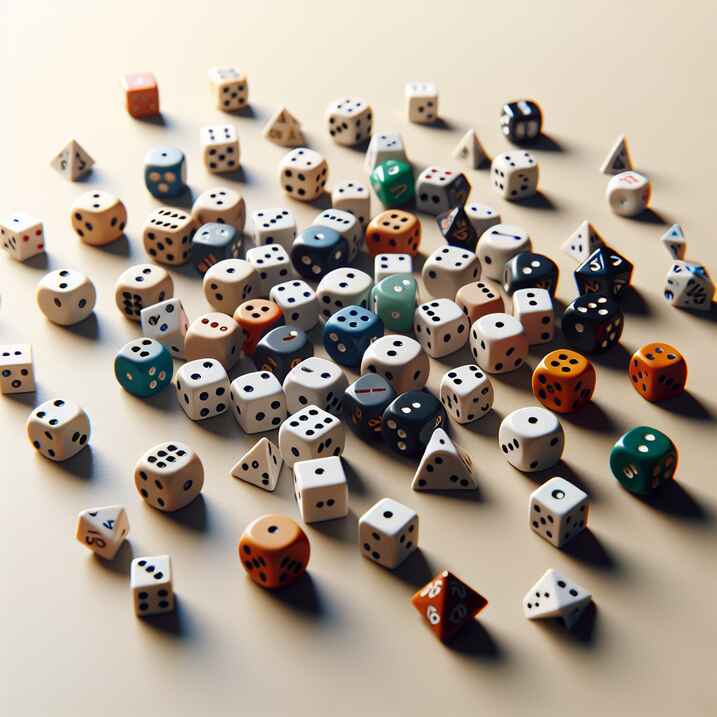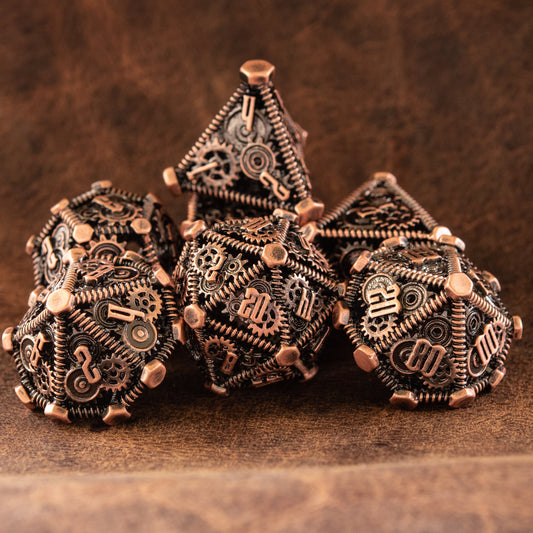Absolutely! As an expert on Dungeons & Dragons (D&D), I'm here to provide insights into the fascinating world of tabletop role-playing games (RPGs). Dungeons & Dragons is a game that blends storytelling, strategy, and chance, creating a unique experience for each player. Here's a brief overview of some key aspects of D&D gameplay:
Character Creation
In D&D, players create characters that embark on adventures in a fantasy world. Character creation involves choosing a race (such as human, elf, or dwarf), a class (like wizard, rogue, or fighter), and various other attributes and skills. This process allows players to tailor their characters to their preferred playstyle and role within the party.
Game Mechanics
The game is guided by rules that cover everything from combat to spellcasting. Players use dice, primarily the 20-sided die (d20), to determine the outcomes of their actions. The Dungeon Master (DM) acts as the storyteller and referee, guiding the narrative and ensuring the rules are followed.
Role-Playing
Role-playing is at the heart of D&D. Players immerse themselves in their characters, making decisions and interacting with the game world as their characters would. This aspect of the game encourages creativity and collaboration among players.
Campaigns and Adventures
D&D is played in campaigns, which are series of adventures that form an overarching narrative. Campaigns can be pre-written modules or custom stories created by the DM. Players explore dungeons, solve puzzles, and battle monsters as they progress through the story.
Dice and Randomness
Dice play a crucial role in D&D, adding an element of chance to the game. While players can strategize and plan, the roll of the dice can lead to unexpected outcomes, making each session unique. Understanding the randomness of dice rolls is key to mastering the game.
Community and Culture
D&D has a vibrant community of players and fans. It has influenced popular culture, inspiring books, movies, and video games. Players often gather in person or online to share their experiences, discuss strategies, and collaborate on new adventures.
Whether you're a seasoned player or new to the game, Dungeons & Dragons offers endless possibilities for adventure and storytelling. If you have specific questions or need guidance on any aspect of the game, feel free to ask! Absolutely! As an expert on Dungeons & Dragons (D&D), I'm here to provide insights into the fascinating world of tabletop role-playing games (RPGs). Dungeons & Dragons is a game that blends storytelling, strategy, and chance, creating a unique experience for each player. Here's a brief overview of some key aspects of D&D gameplay:
Character Creation
In D&D, players create characters that embark on adventures in a fantasy world. Character creation involves choosing a race (such as human, elf, or dwarf), a class (like wizard, rogue, or fighter), and various other attributes and skills. This process allows players to tailor their characters to their preferred playstyle and role within the party.
Game Mechanics
The game is guided by rules that cover everything from combat to spellcasting. Players use dice, primarily the 20-sided die (d20), to determine the outcomes of their actions. The Dungeon Master (DM) acts as the storyteller and referee, guiding the narrative and ensuring the rules are followed.
Role-Playing
Role-playing is at the heart of D&D. Players immerse themselves in their characters, making decisions and interacting with the game world as their characters would. This aspect of the game encourages creativity and collaboration among players.
Campaigns and Adventures
D&D is played in campaigns, which are series of adventures that form an overarching narrative. Campaigns can be pre-written modules or custom stories created by the DM. Players explore dungeons, solve puzzles, and battle monsters as they progress through the story.
Dice and Randomness
Dice play a crucial role in D&D, adding an element of chance to the game. While players can strategize and plan, the roll of the dice can lead to unexpected outcomes, making each session unique. Understanding the randomness of dice rolls is key to mastering the game.
Community and Culture
D&D has a vibrant community of players and fans. It has influenced popular culture, inspiring books, movies, and video games. Players often gather in person or online to share their experiences, discuss strategies, and collaborate on new adventures.
Whether you're a seasoned player or new to the game, Dungeons & Dragons offers endless possibilities for adventure and storytelling. If you have specific questions or need guidance on any aspect of the game, feel free to ask!






